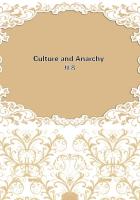Up to this point we have proceeded from the assumption that Herr Dühring's persistent habit of misquoting is done at least in good faith, and arises either from his total incapacity to understand things or from a habit of quoting from memory -- a habit which seems to be peculiar to historical depiction in the grand style, but is usually described as slovenly. But we seem to have reached the point at which, even with Herr Dühring, quantity is transformed into quality. For we must take into consideration in the first place that the passage in Marx is in itself perfectly clear and is moreover amplified in the same book by a further passage which leaves no room whatever for misunderstanding; secondly, that Herr Dühring had discovered the monstrosity of "property which is at once both individual and social" {505} neither in the critique of Capital , in the Ergäntungsblätter which was referred to above, nor even in the critique contained in the first edition of his Kritische Geschichte , but only in the second edition -- that is, on the third reading of Capital; further, that in this second edition, which was rewritten in a socialist sense, it was deemed necessary by Herr Dühring to make Marx say the utmost possible nonsense about the future organisation of society, in order to enable him, in contrast, to bring forward all the more triumphantly -- as he in fact does -- "the economic commune as described by me in economic and juridical outline in my Cursus" {504}
-- when we take all this into consideration, we are almost forced to the conclusion that Herr Dühring has here deliberately made a "beneficent extension" of Marx's idea -- beneficent for Herr Dühring.
But what role does the negation of the negation play in Marx?
On page 791 and the following pages he sets out the final conclusions which he draws from the preceding fifty pages of economic and historical investigation into the so-called primitive accumulation of capital. [62] Before the capitalist era, petty industry existed, at least in England, on the basis o/ the private property of the labourer in his means of production.
The so-called primitive accumulation of capital consisted there in the expropriation of these immediate producers, that is, in the dissolution of private property based on the labour of its owner. This became possible because the petty industry referred to above is compatible only with narrow and primitive bounds of production and society and at a certain stage brings forth the material agencies for its own annihilation. This annihilation, the transformation of the individual and scattered means of production into socially concentrated ones, forms the prehistory of capital. As soon as the labourers are turned into proletarians, their conditions of labour into capital, as soon as the capitalist mode of production stands on its own feet, the further socialisation of labour and further transformation of the land and other means of production, and therefore the further expropriation of private proprietors, takes a new form. "That which is now to be expropriated is no longer the labourer working for himself, but the capitalist exploiting many labourers. This expropriation is accomplished by the action of the immanent laws of capitalistic production itself, by the concentration of capitals. One capitalist always kills many. Hand in hand with this concentration, or this expropriation of many capitalists by few, develop, on an ever extending scale, the co-operative form of the labour-process, the conscious technical application of science, the methodical collective cultivation of the soil, the transformation of the instruments of labour into instruments of labour only usable in common, the economising of all means of production by their use as the jointly owned means of production of combined, socialised labour.
Along with the constantly diminishing number of the magnates of capital, who usurp and monopolise all advantages of this process of transformation, grows the mass of misery, oppression, slavery, degradation, exploitation;but with this too grows the revolt of the working class, a class always increasing in numbers, and disciplined, united, organised by the very mechanism of the process of capitalist production itself. Capital becomes a fetter upon the mode of production, which has sprung up and flourished along with, and under it. Concentration of the means of production and socialisation of labour at last reach a point where they become incompatible with their capitalist integument. This integument is burst asunder. The knell of capitalist private property sounds. The expropriators are expropriated."And now I ask the reader: where are the dialectical frills and mazes and conceptual arabesques; where the mixed and misconceived ideas according to which everything is all one and the same thing in the end;where the dialectical miracles for his faithful followers; where the mysterious dialectical rubbish and the maze in accordance with the Hegelian Logos doctrine, without which Marx, according to Herr Dühring, is unable to put his exposition into shape? Marx merely shows from history, and here states in a summarised form, that just as formerly petty industry by its very development necessarily created the conditions of its own annihilation, i.e., of the expropriation of the small proprietors, so now the capitalist mode of production has likewise itself created the material conditions from which it must perish. The process is a historical one, and if it is at the same time a dialectical process, this is not Marx's fault, however annoying it may be to Herr Dühring.















